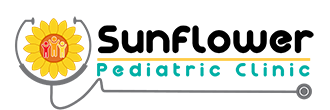
5 Newborn Care Topics to Discuss with Your Pediatrician
1) Newborn Feeding
The American Academy of Pediatrics (AAP) recommends that newborns breastfeed exclusively for the first 6 months. However, this isn’t possible for all moms. Speak to your pediatrician about the benefits of feeding on-demand and maintaining a feeding schedule for your newborn.Try to recognize cues of hunger and satiety in your newborn, in order to determine the right feeding schedule for your baby.
2) Newborn Sleep Hygiene
Newborns typically sleep for 16-17 hours a day, but usually a couple of hours at a time, waking up intermittently throughout the day. It is important that newborns sleep alone on their back, and in a crib, to prevent Sudden Infant Death Syndrome (SIDS). It is also important to make sure there aren’t any toys, pillows, or loose blankets in the crib. Pediatricians often recommend creating a routine for the baby to get accustomed to (for instance, keeping the house dark during nighttime, or a routine of singing and laying down with the baby before sleep time so the newborn knows it is time to sleep.
3) Newborn Bathing
Pediatricians recommend that newborns be bathed about 2~3 times a week as bathing them too frequently can result in skin disorders like eczema. Further, if the newborn still has their umbilical cord or has just received a circumcision (in the case of baby boys), it is recommended that they be spot-cleaned, and not in a fully filled bathtub to facilitate quick healing.
4) Circumcision
While the AAP’s official stance is that they do not recommend routine circumcision for all male newborns, they do believe that the benefits generally outweigh the risks. Benefits include reduced risk of urinary tract infections, as well as reduced risk of sexually transmitted infections, but parents should speak to their pediatrician for more specific recommendations based on their child’s health records.
5) Umbilical Cord Care
Pediatricians recommend that parents leave the umbilical cord alone, as it will dry and fall off on its own (typically within 1-3 weeks). Parents should watch for signs of infection (such as oozing), and spot clean their newborn with a sponge until the area fully heals.





